A complex diplomatic dance unfolds as Trump says tariff negotiations with India remain active despite broader concerns. The former president praises his personal relationship with India’s leader while expressing serious worries about economic alliances. This delicate balance reflects the challenging nature of modern international trade relationships.
Trump’s Mixed Messages on India Relations
The relationship between Trump and Modi represents one of the more stable diplomatic connections in recent years. Personal chemistry between these world leaders has remained strong throughout various political changes and economic challenges. Trump consistently describes Modi as a close friend despite policy disagreements on certain issues.
However, Trump’s recent comments reveal deeper concerns about India’s participation in alternative economic structures. The BRICS alliance includes Brazil, Russia, India, China, and South Africa as founding members. Trump views this group as a direct challenge to American economic dominance globally.
Tariff negotiations between the United States and India have continued through multiple presidential administrations without reaching comprehensive agreements. Trade imbalances and market access issues remain significant points of contention between these major economies. Trump’s approach typically favours bilateral deals over multilateral trade frameworks.
Understanding the BRICS Challenge to US Dollar Dominance
The attack on the dollar reference highlights Trump’s primary concern about emerging economic alliances challenging American financial supremacy. BRICS nations have increasingly discussed alternatives to dollar-denominated international trade and reserve systems. These conversations worry American policymakers across party lines significantly.
China and Russia particularly advocate for reduced dollar dependence in international transactions and reserve holdings. India’s participation in these discussions creates tension with traditional American allies seeking continued dollar dominance. The economic implications could reshape global financial systems over the coming decades.
Several BRICS initiatives directly challenge existing Western-dominated financial institutions and payment systems. The New Development Bank offers alternatives to World Bank and International Monetary Fund lending programs. Digital currency experiments also explore options beyond traditional dollar-based settlement mechanisms.
India’s Balancing Act Between East and West
India faces complex choices between maintaining strong Western relationships and pursuing beneficial partnerships with other emerging economies. The country’s massive population and growing economy make it an attractive partner for multiple global powers. Strategic autonomy remains a cornerstone of Indian foreign policy across different government administrations.
Your understanding of India’s position requires recognising its historical non-alignment policies dating back to independence. The country traditionally avoids exclusive partnerships with single power blocs while maintaining beneficial relationships across different regions. This approach continues to influence modern diplomatic and economic decisions significantly.
Trade relationships with both the United States and China present opportunities and challenges for Indian policymakers. Balancing these competing interests requires careful navigation of economic benefits against political pressures from various partners. The complexity increases as global tensions rise between major powers.
Economic Implications of Trump’s Tariff Threats
Trump’s tariff approach historically focuses on reducing trade deficits through aggressive negotiation tactics and import restrictions. India maintains a significant trade surplus with the United States across multiple product categories. This imbalance creates ongoing tension in bilateral economic discussions between the nations.
Key areas of trade dispute include:
- Information technology services and visa restrictions
- Agricultural market access and regulatory barriers
- Manufacturing tariffs on steel, aluminium, and textiles
- Pharmaceutical patents and generic drug policies
- Digital services taxation and technology transfer requirements
The threat of increased tariffs could significantly impact Indian exporters across multiple industries and service sectors. Technology companies particularly worry about visa restrictions affecting their American operations and client relationships. Agricultural exporters also face potential market access limitations through new trade barriers.
Simultaneously, American businesses operating in India could face retaliatory measures affecting their market access and operational costs. The interdependent nature of modern economies means trade wars typically harm businesses in both countries. Consumer prices often increase as companies pass higher costs to end users.
Modi’s Response Strategy and Diplomatic Approach
Prime Minister Modi’s administration typically responds to American pressure through quiet diplomacy rather than public confrontation. The Indian approach emphasises finding mutually beneficial solutions while maintaining strategic autonomy in global affairs. This measured response style has helped maintain relationships across different American administrations.
India’s diplomatic strategy includes emphasising shared democratic values while pursuing pragmatic economic relationships with various global partners. The country positions itself as a responsible stakeholder in international institutions while advocating for reforms. This approach appeals to Western partners concerned about authoritarian influences in global governance.
The challenge involves maintaining good relationships with Trump while not abandoning beneficial partnerships with other BRICS members. India’s energy imports from Russia and manufacturing partnerships with China create additional complexity in these relationships. Balancing these competing interests requires sophisticated diplomatic management and clear communication strategies.
Looking Ahead: Implications for Global Trade
The ongoing tension between personal relationships and systemic concerns reflects broader challenges in modern international relations. Trump’s comments about Modi being a friend while criticising BRICS participation illustrate this complexity perfectly. Personal diplomacy alone cannot resolve fundamental economic and strategic disagreements between nations.
Future trade negotiations between the United States and India will likely continue facing these structural challenges. Both countries need each other economically while maintaining different perspectives on global governance and economic systems. Finding common ground requires compromise from both sides on sensitive issues.
The resolution of these tensions could influence other emerging economies considering their own relationships with competing global powers. Success in managing these complex relationships could provide templates for other nations facing similar choices. The stakes extend far beyond bilateral trade volumes to include the future structure of global economic systems.


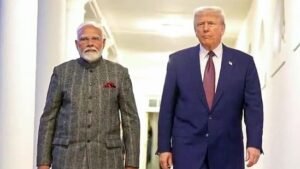




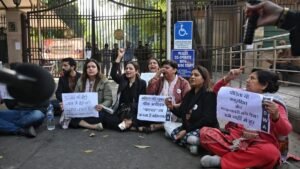
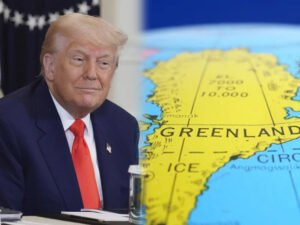

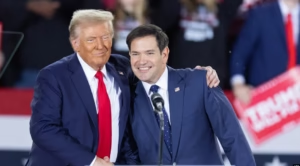
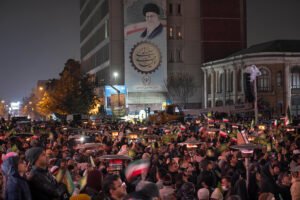

Be First to Comment